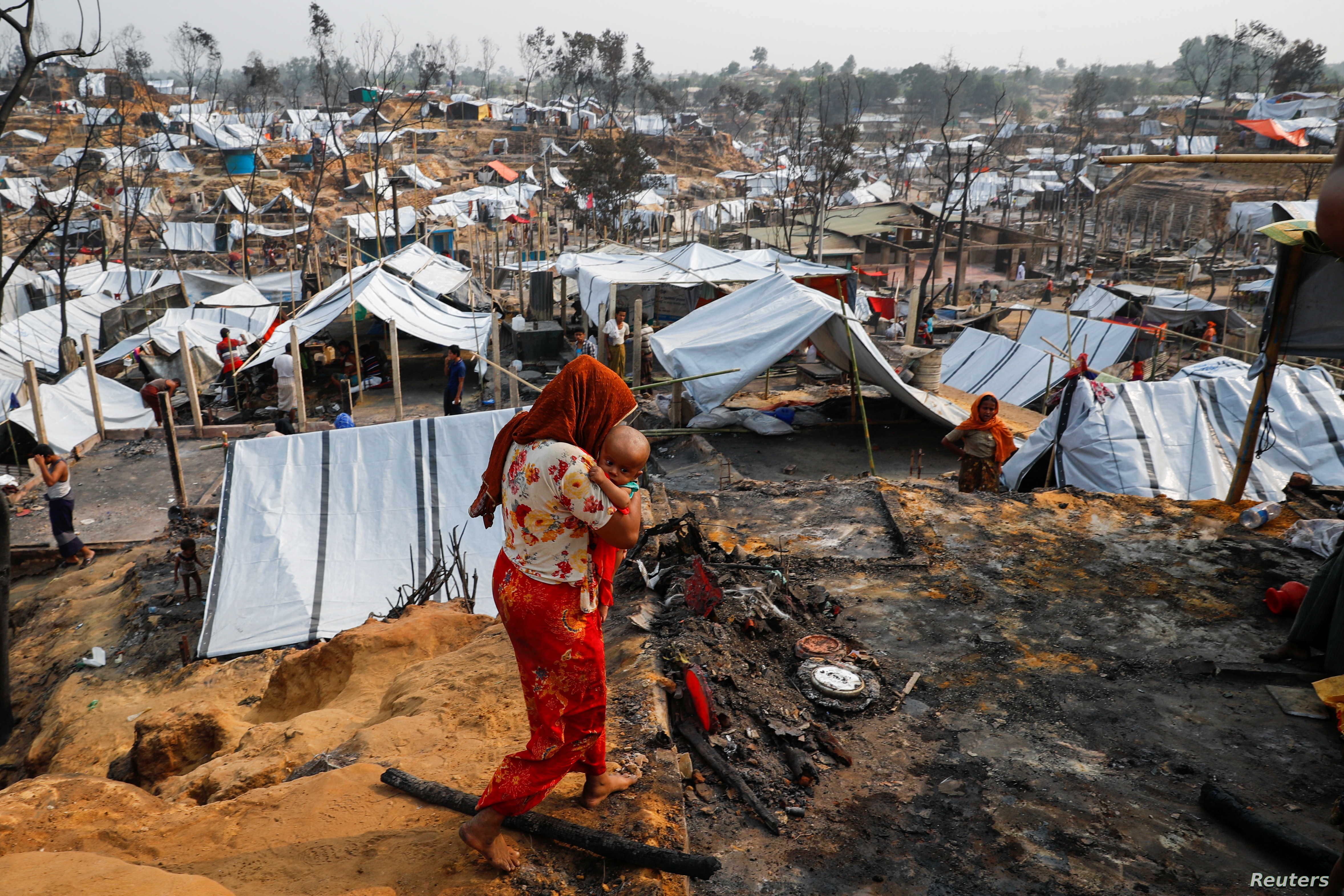Unabating menace
Though a UN assessment describes the security situation in Cox’s Bazar to be ‘peaceful’, certain incidents show ARSA may still be active in the region

As per an assessment by the United Nations (UN), the security situation in Cox's Bazar camps, sheltering the Rohingyas, remains peaceful and there has been no significant change. However, drug-related and syndicate crimes are leading threats. The security situation at Bhasan Char remains calm, and no security incident was reported to adversely affect UN personnel, assets, or operations. However, Bangladesh Coast Guard (BCG) members claimed to have detained 20 refugees from the coast of Bhasan Char, suspecting their complicity in human trafficking and helping refugees escape the island.
Importantly, on August 23, 2022, United Nations Secretary General's special envoy to Myanmar, Noeleen Heyzer, visited Cox's Bazar refugee camps. During her visit, Noeleen observed the ongoing humanitarian activities and exchanged views with Rohingya women, youths and religious leaders in camps to assess the overall crisis on the ground.
Earlier, the visit of Michelle Bachelet — the UN High Commissioner for Human Rights (UNHCR) — mid-August brought up not only the Rohingya issue but also other human rights concerns. Prime Minister Sheikh Hasina was quoted by the national media, saying that it was impossible for Bangladesh to improve education and employment opportunities for Rohingyas in Cox's Bazar. However, she emphasised that in Bhasan Char, conditions were better and that education, health and employment opportunities could be provided on the island. On the other hand, the Rohingya community demanded improved security in the camp during a meeting with the UN human rights chief. The UNHCR also said that repatriation should wait until the situation in Myanmar stabilises. However, this does not look possible in the near future.
Among other Rohingya-related incidents, on 23 August 2022, a Rohingya refugee was stabbed at camp-2E in Kutupalong refugee camp — causing grievous injuries. Family members claimed that members of Arakan Rohingya Salvation Army (ARSA) had attacked the victim. Media also reported that six members of United People's Democratic Front (UPDF) were killed, and two members sustained injuries during an armed clash with insurgent group Parbatya Chattagram Jana Sanghati Samiti (PCJSS) at a remote forest area along the NaniarChar-Longodu border in Rangamati hill district (beyond Cox's Bazar). Judging by this incident, it would seem that ARSA is still active in its persecution of the Rohingyas.
Sheikh Hasina, in the meantime, has stepped up her pressure on the global community to persuade Myanmar to take back the Rohingyas. She held consultations in this regard with Indian political leadership as well. However, it is a difficult call and may not necessarily fructify in the near future.
Also, there are credible reports that there have been ongoing clashes between the Myanmar Tatmadaw and the Arakan Army (AA) in Rakhine for the past two weeks. Media also highlighted that helicopters and fighter jets of Myanmar Army had been seen flying in the border areas. Two mortar shells hurled from Myanmar landed in Bangladesh territory, recently. Border Guard Bangladesh (BGB) remains alert as the incidents created tension and fear among the Rohingya refugees living in Konapara border in Ghumghum camps.
Meanwhile, this August, the world saw completion of five years of the Rohingya influx storming into neighboring Bangladesh. Their number, today, stands at a humongous 1.2 million and they are sheltered in a seclusive zone. Sadly, Bangladesh had to bear the brunt of the refugees for no fault of theirs except that from the geographical point of view, it is located next to the Rakhine State of Myanmar from where the Myanmar's military pushed them into Bangladesh by use of brutal force on August 17, 2017. The influx of such a large number of Rohingyas, all Muslims, has given rise to multiple problems for Bangladesh which alone has been dealing with this ordeal for the last five years. While the international community, and mainly the Islamic nations, have been giving out numerous assurances for humanitarian aids including monetary help etc., on the ground, the promised help is not forthcoming.
In the foregoing, it must be said to the credit of Prime Minister Sheikh Hasina that she handled the Rohingya issue very deftly with enough patience, compassion and resilience. Yet, it is time for the international players to come on board and pressurize the Myanmar military regime to commence repatriation. Powerful actors like the US, the UK and other strong European countries who display occasional show of strength to weaker countries need to crack a whip on Myanmar to show "enough is enough". Unless strong-arm tactics or a robust posturing is not displayed, Myanmar is unlikely to relent and the Rohingya problem will continue to be a matter of status quo.
The writer is a retired IPS officer, a security analyst and a former National Security Advisor to the PM of Mauritius. Views expressed are personal



